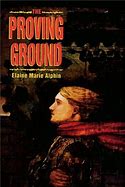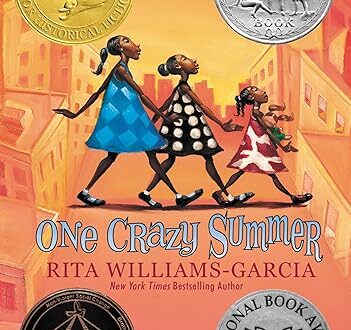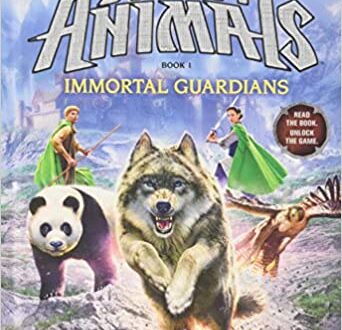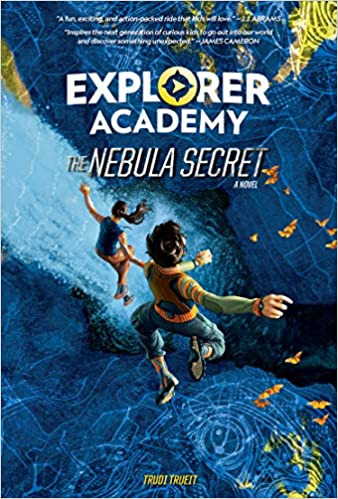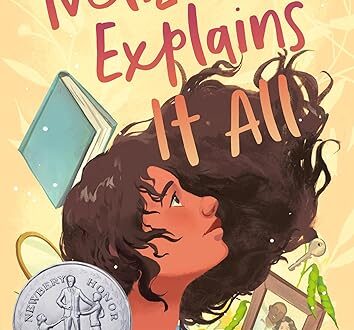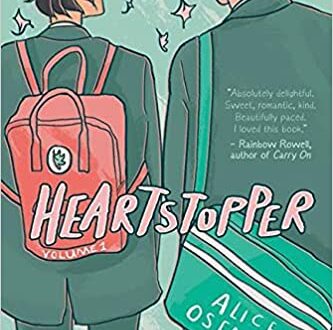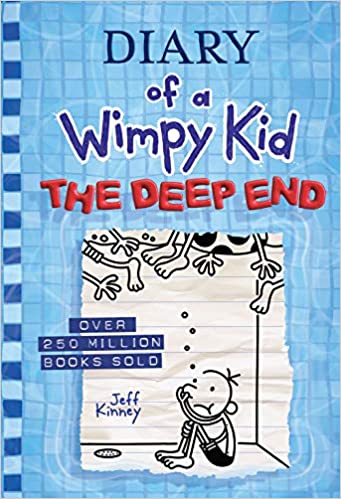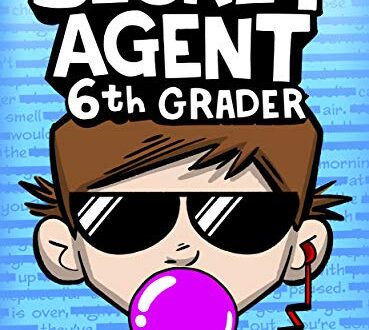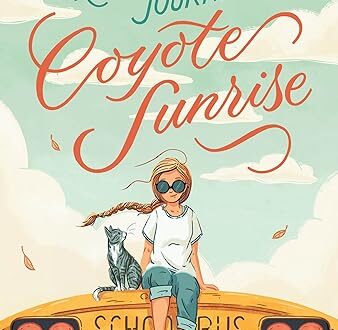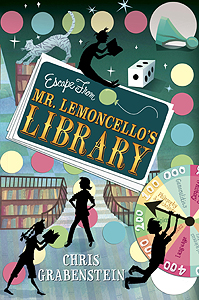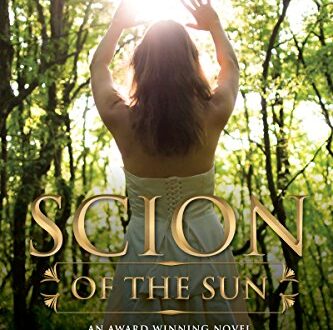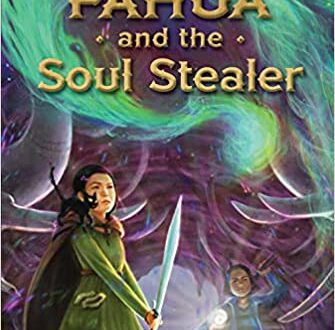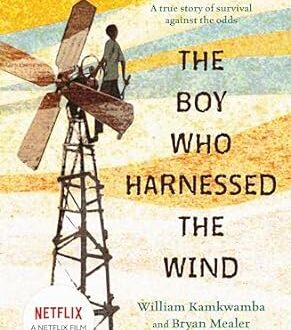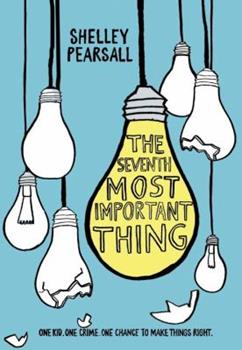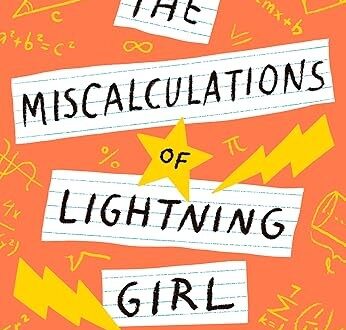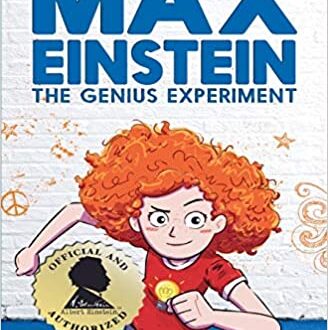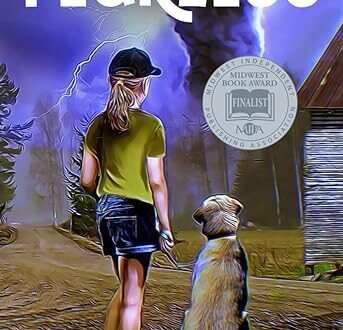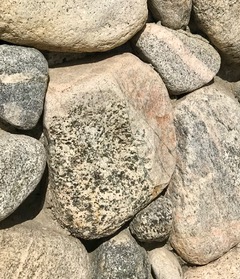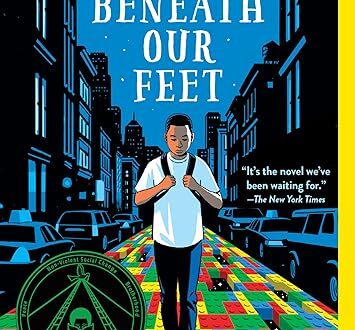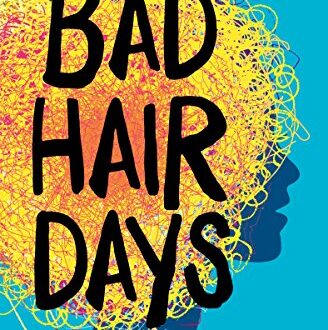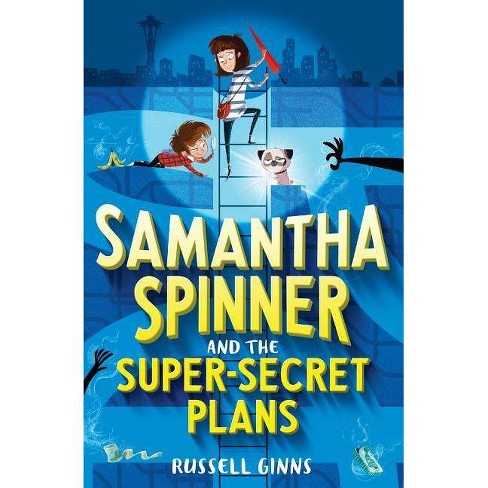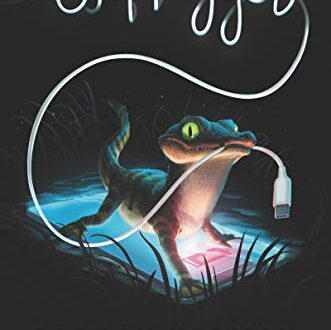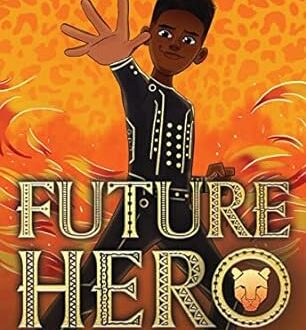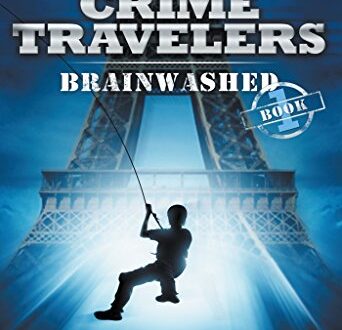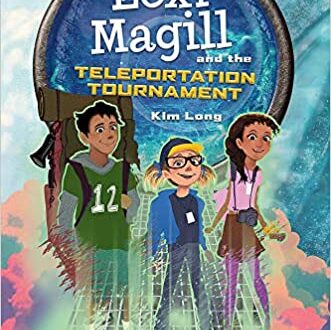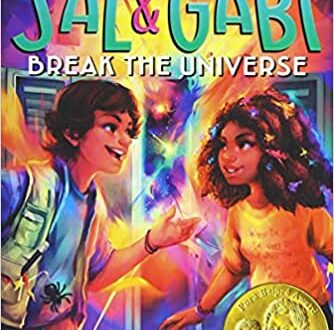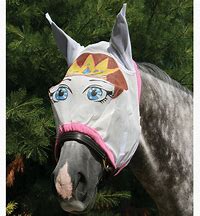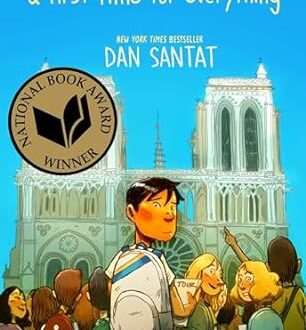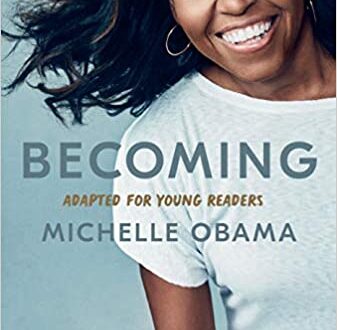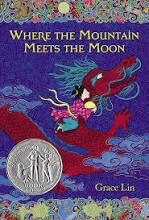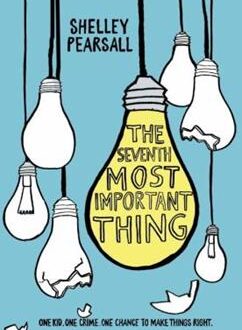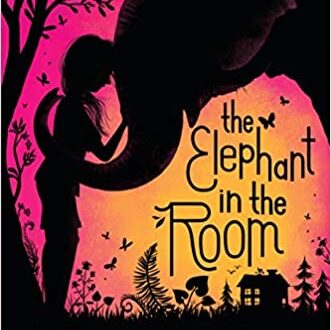-
The Proving Ground
The Proving Ground by the late Elaine Marie Alphin is for readers 9-14.
When Kevin Spencer’s father, a lieutenant colonel in the army, is transferred to a new post at the military Proving Ground in small rural town, Kevin assumes he’ll have a tough time adjusting, but he can’t anticipate just how tough. The entire town bears a grudge against the military, and Kevin has to deal with antagonism from everybody at school – including Charley Hanson, the feisty red-haired girl on whom he has an enormous crush.
His personal problems fade into insignificance, though, when Kevin finds himself the center of an attack on the Proving Ground. An attack that could result in disaster, not only for the military, but for the whole town. For Kevin the Proving Ground becomes not just a place where ammunition is tested, but the place where he finally makes the decision to stand up for what he believes.
-
Explorer Academy: The Nebula Secret
In Book 1 of the Explorer Academy series Cruz Coronado leaves his tranquil home in Kauai, Hawaii to join 23 talented kids from around the globe to train at the Explorer Academy with the world’s leading scientists to become the next generation of great explorers. But for Cruz, there’s more at stake. No sooner has he arrived at the Academy than he discovers that his family has a mysterious past with the organization that could jeopardize his future. In the midst of code breaking and cool classes, new friends and augmented reality expeditions, Cruz must tackle the biggest question of all: Who is out to get him, and why?
Readers 8-12 can get in on the excitement with puzzles and codes embedded throughout the book.
-
The Deep End
In book #15 of the wonderful Diary of a Wimpy Kid series, written by Jeff Kinney, Greg Heffley and his family hit the road for a cross-country camping trip, ready for the adventure of a lifetime. But things take an unexpected turn, and they find themselves stranded at an RV park that’s not exactly a summertime paradise. When the skies open up and the water starts to rise, Greg and his family wonder if they can save their vacation—or if they’re already in too deep.
And while you’re at it you definitely don’t want to miss the all new adventures of Greg’s best friend Rowley, who has two books of his own out—Diary of an Awesome Friendly Kid Rowley Jefferson’s Journal and his second book Rowley Jefferson’s Awesome Friendly Adventure.
These books are great for kids 8-12.
-
Escape From Mr. Lemoncello’s Library
For readers 8 – 12. The author is Chris Grabenstein.
Mr. Lemoncello is a billionaire, who made his fortune from the creation of whacky and creative games, and he couldn’t have done any of it without his local library. When the library is turned into a parking garage, he funds a new library, which takes 12 years to build.
Escape from Mr. Lemoncello’s Library, by Chris Grabenstein, is the story of an eccentric billionaire named Luigi Lemoncello and his plan to share his love of libraries with the children of Alexandriaville. Mr. Lemoncello gives a great deal of money to have the former Gold Leaf Bank renovated as the town’s new library.
When Kyle learns that the world’s most famous game maker has designed the town’s new library and is having an invitation-only lock-in on the first night, he is determined to be there. But the tricky part isn’t getting into the library – it’s getting out. Kyle’s going to need all his smarts, because a good roll of the dice or lucky draw of the cards is not enough to win in Mr. Lemoncello’s library.
Twelve-year-old Kyle Keeley is obsessed with the board games of Mr. Luigi L. Lemoncello, the world’s most renowned game maker. Big news hits his town when Mr. Lemoncello transforms Alexandriaville, Ohio’s old bank into a state-of-the-art, into a technologically advanced library, and he’s holding an essay contest where twelve students from the middle school can spend one night in a lock-in before the library’s opening. Although Kyle misses the essay deadline, he rewrites his essay to email it to Mr. Lemoncello despite a reply that the sending had been unsuccessful. But Kyle’s knowledge of games and his friends’ knowledge of books and libraries are put to the test when they have to play the biggest game yet; having to escape from the library using only their wits and the clues scattered around the library’s different sections.
-
The Seventh Most Important Thing
Here’s a great book for kids 8-12. The author is Shelley Pearsall
This story of anger and art, loss and redemption will appeal to fans of Lisa Graff’s Lost in the Sun and Vince Vawter’s Paperboy.
Arthur T. Owens grabbed a brick and hurled it at the trash picker. Arthur had his reasons, and the brick hit the Junk Man in the arm, not the head. But none of that matters to the judge-he is ready to send Arthur to juvie forever. Amazingly, it’s the Junk Man himself who offers an alternative-120 hours of community service . . . working for him.
Arthur is given a rickety shopping cart and a list of the Seven Most Important Things- glass bottles, foil, cardboard, pieces of wood, light bulbs, coffee cans, and mirrors. He can’t believe it-is he really supposed to rummage through people’s trash? But it isn’t long before Arthur realizes there’s more to the Junk Man than meets the eye, and the “trash” he’s collecting is being transformed into something more precious than anyone could imagine. . . . Inspired by the work of folk artist James Hampton, author Shelley Pearsall has crafted an affecting and redemptive novel about discovering what shines within us all, even when life seems full of darkness.
-
Rocks
Rocks. They are everywhere. Very, very small ones that make up pebbles and dirt. Medium-sized ones that fit in your hand. Big rocks a stonemason can make walls out of. And huge rocks, like boulders and whole mountains.
Geologists are scientists who study the earth (geo), including volcanos, earthquakes, and rocks.
According to them, all rocks fall into three categories. These categories are igneous, metamorphic, and sedimentary. These are three words I think are fun to say. And here are their definitions:
Igneous rocks are formed inside volcanos. The heat is so intense, rock melts and starts to ooze and flow out of the top of these volcanos. Once they are out, they start to cool off and harden. Igneous rocks are the cooled and solidified result.
Metamorphic rocks are igneous rocks that start to change under pressure, heat, and sometimes chemical processes, usually while they are buried deep under the Earth’s surface. They alter or change from simple harden, molten rocks.
The third kind of rock is called sedimentary. The earth is changing all the time. It rains, it snows and freezes, winds blow, and earthquakes shake things up. All this activity affects the rocks and dirt. Rain pounds down on mountains and huge rocks are loosened, small rocks are sent tumbling, and small bits of sand and dirt get washed down rivers into the ocean where it settles to the bottom. After millions of years of layers and layers of dirt and rocks pressing down change the composition of the dirt. It gets pressed into a new kind of rock—sedimentary, which means it is made from sediments, or leftover bits of rocks.
Look around when you are outside. Can you spot each different kind of rock? I found these three in the wall outside my house.

-
Samantha Spinner and the Super-Secret Plans
Here’s another great book for readers 8-12. The author is Russell Ginns.
For Samantha Spinner it just isn’t fair. Her uncle Paul disappeared, and here’s what he left:
Samantha’s sister Buffy got a check for $2,400,000,000.
Samantha’s brother Nipper got the New York Yankees.
And Samantha got a rusty red umbrella with a tag hanging off its worn handle. The tag says “Watch out for the RAIN.”
Thanks a lot, Uncle Paul.
But really, after all the strawberry waffles, stories, and puzzles they’ve shared, how could Uncle Paul just leave without saying goodbye? And what is the meaning of that mysterious message?
The answer is simple: Sam knows in her heart that Uncle Paul is in danger. And if he taught her anything, it’s that not everything is exactly what it seems. Which is why we should pay close attention to that rusty red umbrella, and never trust a monkey at a hula-hoop contest.
The RAIN is coming, and Samantha Spinner is about to find herself mixed up in some super-important, super-dangerous, super-secret plans.
And if she’s brave enough and smart enough, she just might find Uncle Paul.
-
The Mystics #1 Heroes Reborn
This graphic novel is for kids 8 – 12.
Everyday kids become powerful and stop the spread of evil!
In the ancient times of Gods and heroes, evil attempted to seize the world disguising themselves as six different gods. While they were spreading all their power of destruction, six heroes, each with extraordinary powers and brandishing sacred weapons, rose against these incarnations of evil. The evil was defeated and sealed in a secret place within the red desert on the planet Mars.
Today, enter six young heirs: Yuko of Japan, Parvati of India, Amir of Egypt, Abigail of Germany, Miguel of Mexico, and Neo of Greece suddenly pulled from their everyday lives. About to face the greatest threat that the contemporary world has ever known, in a flash, they get to discover just how worthy successors they may be of the ancient heroes.
Getting to Know the Authors
Philippe Ogaki – Born in the Agen neighborhood of Nouvelle-Aquitane, France in 1977, Philippe has always dreamed of becoming a cartoonist. But not believing his dream was possible, he turned to studies in industrial design, which he later completed with a degree in interior design at Boulle school.
Patricia Lyfoung – Passionate very early about drawing, she did her graduate studies at the Estienne school then at the Gobelins in Paris. She first worked as a storyboard assistant at Marathon Animation on the Totally Spies series and Martin Mystery. She is the author of The Scarlet Rose from Papercutz
Patrick Sobral Patrick Sobral worked as a porcelain decorator for twelve years before devoting himself exclusively to the job of comic book author
-
Why are those horses blindfolded?
“I’m worried about the horses in a pasture near me. They’re blindfolded and I’m afraid they’re going to get hurt.”
Every Spring my friend, who works for an animal services department, receives complaints like this!
Do you know what these “blindfolds” really are?
Good job if you know these are actually fly masks, and they don’t impair a horse’s vision. In fact, they protect horses. The masks are made of see-through mesh that protects horses’ face, ears and eyes from flies, insects, and bugs as well as dust and debris in the air and twigs or branches that might otherwise poke them in their eyes.
Fly masks also protect wounds on horses’ heads. Our seven-year old gelding scraped a large spot of hair and skin off his forehead. We doctored his wound and put the fly mask on, protecting him from flies that would otherwise have a party on that wound. Flies are crazy like that.
Have you ever put a fly mask over your own face? I have, and it’s just like looking out your screen door or window screen. Of course my neighbor wanted to know why I was wearing one!
My horses love their fly masks. The minute they see their masks in my hand they lower their heads and stick their noses forward so all I need to do is make sure the opening for their ears is in the right place and then I fasten the Velcro straps.
We always make sure their eyes and faces are clean first, and we make sure to keep their fly masks clean.
Fly masks come in many fun and colorful styles, including coverage for horses’ ears, some have nose fringe, UV protection and longer nose pieces to prevent sunburn. There’s quite a bit more information on the internet about fly masks and their many uses. Just don’t let your neighbor catch you testing one out by wearing it, because take it from me, it might be hard to explain!
-
Where the Mountain Meets the Moon
Young Minli lives in the Valley of Fruitless Mountain, where she and her parents spend their days working hard in the fields. At night, Minli listens to her father’s tales about the Old Man of the Moon, who knows the answer to everything.
Minli sets out on a quest to find the Old Man of the Moon – he will know how she can bring good fortune to her family. Along the way, she meets many magical friends including a talking fish, a powerful king, and a dragon who can’t fly.
Written by Newberry Honor award-winning author Grace Lin this timeless story has stunning illustrations that really add to the wonder of this great adventure story. Grace Lin is also the author of the beloved The Year of the Dog and The Year of the Rat.
For all you Science Fiction and Fantasy fans this is a great book for you. And for those of you who think you don’t like Science Fiction or Fantasy, give it a try because Minli is a heroine that you would want to be best friends with. And besides that, who doesn’t love a dragon that can’t fly or fish that can talk?
